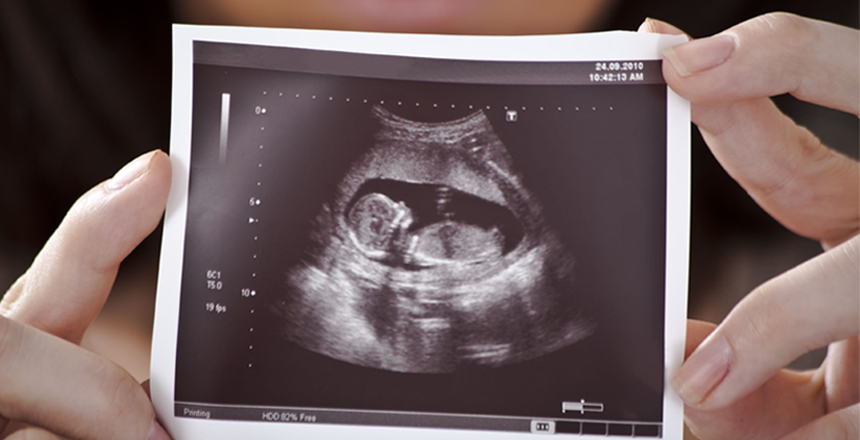
My daughter, Cora Campbell Barrett, arrived in the world on a bright and chilly Boston day facing much uncertainty.
My journey with grief had begun four months earlier, when I learned during a Level II ultrasound that she would be born with Hypoplastic Left Heart Syndrome, a rare congenital heart defect that would consume me in many ways over the ensuing years. Despite the immeasurable joy Cora brought to our family, the uncertainty of her condition tempered my happiness and challenged my sense of normal in a way that often defined our family unit.
I grieved through each of her five open-heart surgeries, and for the scars that would ultimately tell the story of my daughter’s remarkable bravery. I grieved the day she was diagnosed with heart failure, mostly as it meant she would be fluid restricted and would spend hours each day begging for water. I grieved each time I caught a glimpse of her Milrinone backpack, a tiny black accessory concealing an infusion pump that fueled her broken heart for more than seven months. I grieved each day, over the course of the next eighteen months, while she waited for a new heart. I knew Cora’s chance to live would have to come as the result of another family’s unimaginable loss.
My last vivid recollection of Cora, alive and thriving, is from a Saturday afternoon in late August. The trees lining Longwood Avenue in Boston, their trunks rising statuesquely from intricate metal grates designed to protect the city sidewalks, still proffered shade from the late summer sun to passersby. On our last day of vacation in Maine, I’d woken up early and drove South on I-93 — through a sea of New England vacation traffic — to see her. My setting out independently, leaving my husband and two older girls at the beach, was just another instance of my grieving the loss of normal: I was frantically attempting to be in two places at once, to balance my energy and to curb my sorrow all in an attempt to show each of my three, beautiful daughters that she mattered. Yet despite the grieving I’d done through Cora’s long journey with HLHS, I was filled with hope on that day.
READ: ‘Sit Still And Uncover Your Eyes’
When I arrived at the hospital, Cora was sitting up in bed. She was wearing a blue Superman t-shirt and clutching her pink iPad. I’d been away from her bedside for seven days, perhaps for the first time ever. In my attempt to create order from chaos — a strategy I relied upon heavily in my extended grief — I busied myself by attending to the minutiae of Cora’s care within my control. I washed her rather coarse, boy-short hair with a warm and fragrant shampoo cap that had been heated in the microwave. I wiped the crusty sleep from the corners of her eyes with a rough, hospital issue white washcloth. I lovingly massaged her hands and feet with Aveeno lotion to soothe her incessantly dry skin.
She was nearly unencumbered, with nothing to spoil the beautiful landscape of her countenance, save for a clear nasal cannula. Her bright, saucer-like brown eyes, her smooth pink cheeks and her tiny yet robust rosebud mouth were all testaments to the very new, healthy, and four chambered heart beating away in her tiny chest, beneath a sliver of a scar that showed the transplant surgeon’s affinity for external sutures as opposed to surgical glue.
I snapped two pictures of Cora that day, and posted the better of the pair to her GoFundMe page with a perfunctory message: “Four weeks post transplant.” I was present in that moment, full of wonder at the great strides Cora had made toward recovery, albeit simultaneously grieving the inevitability of what was to come: anti-rejection medications, tissue biopsies and severe immunosuppression. She experienced an acute attack of antibody-mediated rejection just five days later that resulted in her being placed on life support for the second time post transplant. So I began the grieving process – again. Just three months shy of her sixth birthday, Cora died as a result of complications following what we had hoped would be a successful heart transplant.
As I write this, my beautiful little girl has been gone just shy of two months. And yet, I have been grieving for nearly six and a half years. Today, I’m navigating the path without Cora’s physical presence. The ancient Greek philosopher Heraclitus said, “[I] cannot step twice into the same stream.” Each time I am overcome with sadness so fierce it feels as though a current might sweep me away, I am reminded that grief does not always begin with death; in fact, it can be quite present in life.
READ: 7 Tips for Speaking With a Bereaved Mother
Cora gave me many intangible gifts. Her life taught me that grief and loss that persist over time make space that allows for beautiful things to happen. Perspectives change, sisters become best friends, and little girls — in spite of chronic illness — grow up, develop dynamic personalities and charm all who love them with silly jokes and potty talk and belly laughs borne of an unimaginably profound journey. And it is missing these things, not simply feeling overcome by a proverbial woolen blanket that threatens to suffocate my breath, that gives me the freedom to continue on my journey.
Hannah Van Sickle lives in the Berkshire Hills of Western Massachusetts where she grew up and is now raising her daughters. An English teacher by training, Hannah works as an academic tutor where she offers support to students in the arenas of writing, organization and planning.








